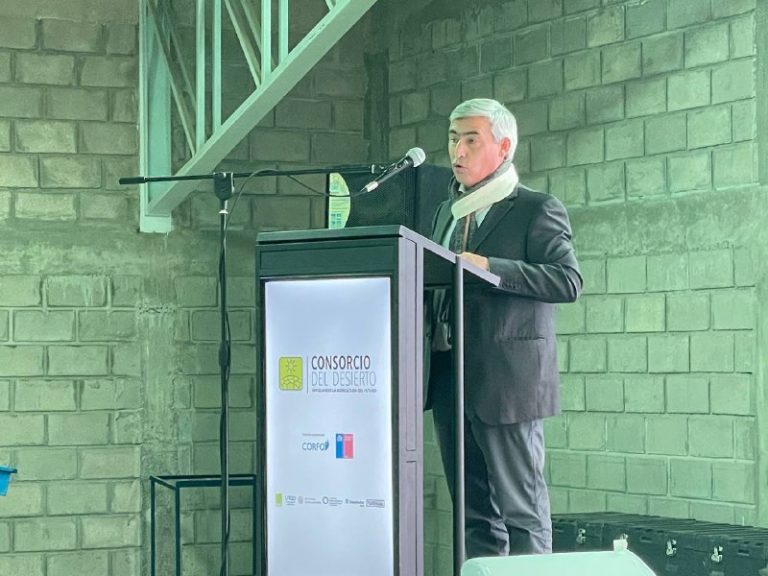Chile bets on agriculture in the desert to face climate change

The increase in the temperature of the planet, caused by the emissions of greenhouse gases into the atmosphere, is generating important variations in the climate and the record of unusual situations worldwide. Experts warn that climate change is causing, among other damages, a progressive desertification that will generate a severe impact in the next 15 to 20 years and warn about the importance of generating tools that allow us to face this reality.
Considering this context, together with other current phenomena – the demographic explosion, the growing demand for food by the population, the need for new spaces for crops and the loss of interest of the new generations in linking with local agriculture – it was created an initiative that seeks to execute and finance a portfolio of projects linked to technologies that strengthen agriculture in arid zones, specifically in the regions of Arica and Parinacota, Tarapacá and Antofagasta.
This is the “Desert Consortium: Promoting the agriculture of the future”, an instance led by Corfo, through the Rural Sector Social Development Corporation (Codesser), whose official launch took place today at the packing house of the Association of Small Farmers of Arica and Parinacota (APAAP), in Pampa Concordia, where national, regional and community authorities, together with agricultural producers and farmers, praised the program that will optimize the use of water and energy through the total financing of 3 thousand 350 million pesos for the next six years.

“Climate change is affecting us and we know that it is an issue that has no return. Thus, the increase in temperatures and the advance of the desert have had a strong impact on our country and in particular the north. This is a transformative project and will change the way agriculture is developed in our country, adjusting to the current difficult context of drought," said the Undersecretary of Agriculture, José Guajardo Reyes.
The authority added that the initiative "contemplates to develop new technology and/or adapt existing technologies, in addition to determining plant species with greater economic potential to address the challenges of the desertified areas of the north, always thinking of sustainable growth."
In turn, the Executive Vice President of Corfo, José Miguel Benavente, highlighted that to strategically address these technological, productive and environmental challenges, it is necessary to generate and promote the development of associative business and territorial organizational structures. “For this, Corfo, through the Technological Programs instrument, seeks to increase the rate of technological innovation in products and processes of companies in specific productive and/or economic sectors, through the articulated execution of portfolios of technological development projects that allow to reduce and/or or close the gaps detected”, he emphasized.
Meanwhile, the secretary general of Codesser, Marcia Echenique, specified that "our role as articulator of the Consortium is clear: to know all the relevant actors so that the objectives of the project are fulfilled and to work so that they are at the service of the agricultural development that we seek".
Chile as a global benchmark
The program considers the participation of 57 entities as co-executors, associates and interested parties, highlighting universities, research centers, companies, trade associations, municipalities and public and regional entities.
The project considers actions that allow identifying the commercial potential of endemic plant species of the territory to know the attributes that allow them to survive in it. It will also identify exotic plant species, adaptable to these conditions and the estimation of their impacts on the local ecosystem. Technologies associated with renewable energies will be integrated, works will be developed to carry out tests, monitoring and digitalization of agriculture in the desert, and innovations will be implemented that allow obtaining drinking water and for irrigation.
In short, the Desert Consortium will increase the technical capabilities of the macro-regional agricultural community and generate alliances between companies that strengthen technological development and new capabilities to position Chile as a global benchmark for knowledge and innovation in this area.














